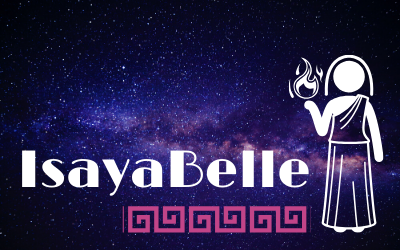Ever felt trapped by the need to do everything perfectly? Anne Lamott nailed it: Perfectionism is the voice of the oppressor, the enemy of the people. It will keep you cramped and insane your whole life.
And honestly… she’s right.
Perfectionism struts around pretending to be our personal growth coach, whispering about “high standards” and “doing our best.” But in truth, it’s more like that toxic friend who drains all the fun out of every party.
It doesn’t raise your standards.
It lowers your outputs.
And it often hides behind procrastination. We avoid starting projects, delay sharing ideas, and stall on simple tasks, not because we lack talent or motivation, but because the thought of creating something that isn’t perfect feels too frightening. That fear keeps us trapped in the planning and polishing phase, while the joy of actually doing slips further and further away.
Because when you’re too busy polishing, tweaking, doubting, and over-thinking… you’re not creating. You’re stuck in creative purgatory, where joy, spontaneity, and play go to die.

The Myth of High Standards
Perfectionism loves a good disguise. It wears a shiny mask labeled excellence and convinces you it’s helping.
But excellence and perfectionism are not the same species.
Excellence says, I’ll do my best and learn as I go.
Perfectionism says, If it’s not flawless, it’s worthless.
That second voice might sound noble, but it’s a trap. It’s a sneaky way of avoiding vulnerability — because as long as something isn’t “ready,” you never have to share it.
You can stay safe in the editing phase forever.
Which, let’s be honest, is the creative equivalent of purgatory: endless revising, zero joy.

Why We Fall Into Perfectionism
Perfectionism rarely appears out of nowhere. It’s often baked into us by life itself:
• Social conditioning: upbringing, culture, and schooling that reward “flawless.”
• Fear: fear of failure, rejection, or shame.
• Comparison: measuring ourselves against others or idealized standards.
• Identity: sometimes perfectionism becomes wrapped up in self-worth: “I am only okay if I’m perfect.”
These forces combine to make perfectionism feel like a necessary survival skill… When really, it’s a sneaky trap.

What It Costs
Perfectionism doesn’t just slow us down; it takes a toll on every part of life:
• Time: wasted adjusting, revising, never finishing.
• Mental health: anxiety, impostor syndrome, low self-esteem.
• Creativity lost: ideas never tried, projects never started, potential unrealized.
• Joy lost: life feels less spontaneous, more rigid, less playful.
The irony is that perfectionism promises safety and control, but in reality, it robs us of the very things we most want: creativity, satisfaction, and joy. Understanding why it latches onto us and recognizing the costs it exacts is the first step toward freeing ourselves.

The Joy Thief in Disguise
When you were five, you didn’t care if your painting was messy… You just loved the smell of crayons.
Perfectionism kills that version of you.
It replaces wonder with worry, creativity with control.
Life becomes a performance review instead of a playground.
You start measuring yourself instead of expressing yourself. And joy can’t survive under a measuring tape.
That’s what makes perfectionism such an efficient killjoy. It takes something inherently delightful, like writing, painting, dancing, or cooking, and turns it into a test you can only fail.

Perfectionism Doesn’t Lift Your Standards. It Strangles Your Productivity.
This is the sneaky part.
Perfectionism feels productive because it’s full of action: redoing, refining, rewriting, researching, rearranging.
But in reality, it’s just a glorified form of procrastination.
You create less.
You share less.
You finish less.
The more you aim for perfection, the less you create at all.
It’s the ultimate paradox: the fear of imperfection creates a lifetime of unfinished masterpieces.
The book that never gets published.
The song that never gets recorded.
The project that lives eternally in your “almost there” folder.
Meanwhile, joy and creativity, those wild, untamed forces that thrive on experimentation and chaos…They quietly pack their bags and leave. They can’t breathe in an airless space of “almost but not quite.”
How to Reclaim Your Playfulness (and Sanity)

There’s a way out, of course. But it’s not about lowering your standards… It’s about softening your grip.
1. Set “good enough” goals.
Done is better than perfect. Really. Done is beautiful. Because something finished, even if it’s rough, moves the world forward. Something perfect-but-unfinished doesn’t exist.
2. Schedule imperfection.
Post something raw. Burn a pancake. Wear mismatched socks. Tell the story before you’ve found the perfect words. It’s humbling, freeing, and surprisingly fun.
3. Celebrate the messy middle.
Every masterpiece was once an awkward draft. Every goddess had a clumsy beginning.
4. Remember why you started.
You didn’t begin creating to impress anyone. You began because it made you feel alive. Go back there.
And most importantly: play again.
Perfectionism cannot survive play. It withers in laughter, in experiments, in oops moments.

Remember
Perfectionism will always try to convince you that it’s keeping you safe, from failure, from criticism, from embarrassment.
But really, it’s just keeping you small.
Life is far too wild and precious to waste on flawless performances.
So today, I dare you to do something imperfectly.
Sing off-key. Paint outside the lines. Share the thing that’s “not quite ready.”
And watch what happens.
Because joy, like creativity, doesn’t live in perfection: it lives in the glorious, messy, human act of simply doing it anyway. And enjoying the heck out of it!
Voilà. I believe that is all for today. I would be so happy to hear from you. If this spoke to your heart, I would love for you to share it with a sister, a friend, a fellow Goddess on the path. I send, as always, love, light, and gratitude.
Isaya

Good piece, not perfect maybe 😉 but far better than good enough. Lots of ideas and valuable advice. Winnicott’s ‘good enough’ idea, one that he discussed in relation to ‘good enough mother’ needs to be further developed. Thank you.